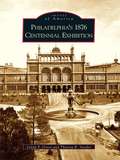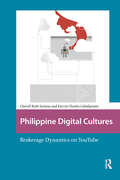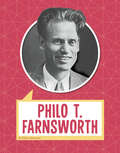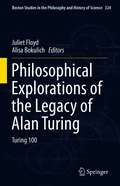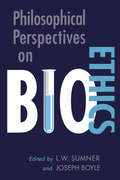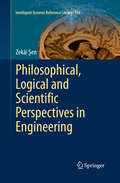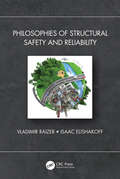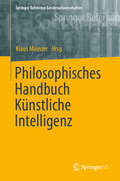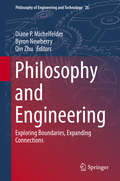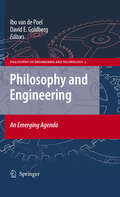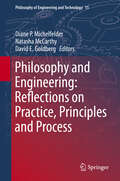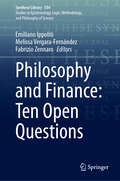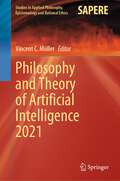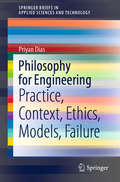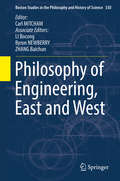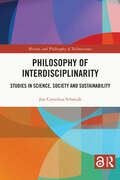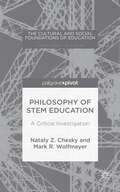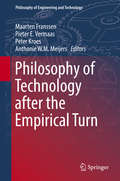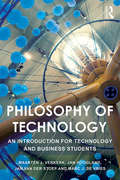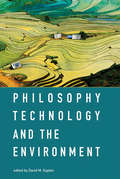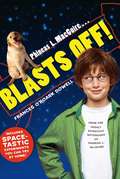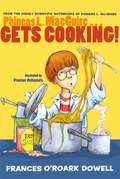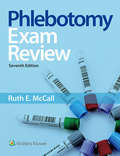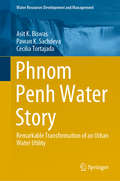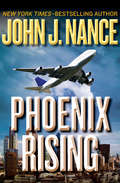- Table View
- List View
Philadelphia's 1876 Centennial Exhibition
by Linda P. Gross Theresa R. SnyderHeld in Philadelphia from May 10 through October 10, the 1876 Centennial Exhibition celebrated the 100th anniversary of American independence. Philadelphia hosted 37 nations in five main buildings and 250 additional structures on 285 acres of land. The celebration looked backward to commemorate the progress made over the 100-year period, and it announced to the world that American invention and innovation was on a par with that of our foreign counterparts. Patriotism abounded, as did messages of industrial and commercial prowess that promised a brighter future for all. Over nine million people attended this awesome consumer spectacle, an event that set the tone for a long series of world's fairs yet to come.
Philippine Digital Cultures: Brokerage Dynamics on YouTube (Asian Visual Cultures)
by Earvin Charles Cabalquinto Cheryll Ruth SorianoSocial media platforms have been pivotal in redefining the conduct of contemporary society. Amid the proliferation of a range of new and ubiquitous online platforms, YouTube, a video-based platform, remains a key driver in the democratisation of creative, playful, vernacular, intimate, as well as political expressions. As a critical node of contemporary communication and digital cultures, its steady uptake and appropriation in a social media-savvy nation such as the Philippines requires a critical examination of its role in the continued reconstruction of identities, communities, and broader social institutions. This book closely analyses the diverse content and practices of amateur Filipino YouTubers, exposing and problematising the dynamics of brokering the contested aspirational logics of beauty and selfhood, interracial relationships, world-class labour, and progressive governance in a digital sphere. Ultimately, YouTube and Brokerage Dynamics in Philippine Digital Cultures offers a fresh, compelling, and nuanced account of YouTube as an important site for the mediation of culture, economy, and politics in Philippine postcolonial modernity amid rapid economic globalisation and digitalisation.
Philo T. Farnsworth (Biographies)
by Ellen LabrecqueHow much do you know about Philo T. Farnsworth? Find out the facts you need to know about this inventor, scientist, and TV pioneer. You’ll learn about the early life, challenges, and major accomplishments of this important American.
Philosophical Explorations of the Legacy of Alan Turing: Turing 100 (Boston Studies in the Philosophy and History of Science #324)
by Alisa Bokulich Juliet FloydThis volume presents an historical and philosophical revisiting of the foundational character of Turing's conceptual contributions and assesses the impact of the work of Alan Turing on the history and philosophy of science. Written by experts from a variety of disciplines, the book draws out the continuing significance of Turing's work. The centennial of Turing's birth in 2012 led to the highly celebrated "Alan Turing Year", which stimulated a world-wide cooperative, interdisciplinary revisiting of his life and work. Turing is widely regarded as one of the most important scientists of the twentieth century: He is the father of artificial intelligence, resolver of Hilbert's famous Entscheidungsproblem, and a code breaker who helped solve the Enigma code. His work revolutionized the very architecture of science by way of the results he obtained in logic, probability and recursion theory, morphogenesis, the foundations of cognitive psychology, mathematics, and cryptography. Many of Turing's breakthroughs were stimulated by his deep reflections on fundamental philosophical issues. Hence it is fitting that there be a volume dedicated to the philosophical impact of his work. One important strand of Turing's work is his analysis of the concept of computability, which has unquestionably come to play a central conceptual role in nearly every branch of knowledge and engineering.
Philosophical Perspectives on Bioethics
by L. Wayne Sumner Joseph BoyleHow should we attempt to resolve concrete bioethical problems? How are we to understand the role of bioethics in the health care system, government, and academe? This collection of original essays raises these and other questions about the nature of bioethics as a discipline. The contributors to the volume discuss various approaches to bioethical thinking and the political and institutional contexts of bioethics, addressing underlying concerns about the purposes of its practice. Included are extended analyses of such important issues as the conduct of clinical trials, euthanasia, justice in health care, the care of children, cosmetic surgery, and reproductive technologies.
Philosophical, Logical and Scientific Perspectives in Engineering
by Zekâi ŞenThis book highlights and explains the significance of philosophical, logical, and scientific principles for engineering education/training and engineering works. In so doing, it aims to help to rectify the neglect of philosophy and logic in current education and training programs, which emphasize analytical and numerical methods at the expense of the innovative practical and creative abilities so important for engineering in the past. Individual chapters examine the relation of philosophy, logic, and science to engineering, drawing attention to, for example, the significance of ethics, the relevance of the philosophy of science, and the increasing importance of application of fuzzy logic to engineering. Modeling principles and philosophy in engineering are discussed, and the impact of different education systems, examined. Too often engineers have become reliant on readily available formulations and software; this book offers an antidote, promoting the recognition of artistic and humanitarian aspects and their integration in engineering works.
Philosophies of Structural Safety and Reliability
by Isaac Elishakoff Vladimir RaizerUncertainty is certain to be found in structural engineering, making it crucial to structure design. This book covers three competing philosophies behind structural safety and reliability: probabilistic analysis, fuzzy set-based treatments, and the convex approach. Explaining the theory behind probabilistic analysis, fuzzy set-based treatments, and the convex approach in detail, alongside their implementation, use, and benefits, the book compares and contrasts these methods, enabling the reader to solve problems associated with uncertainty. These uncertainty issues can be seen in civil engineering structures, risk of earthquakes, impact of rough seas on ships, and turbulence affecting aerospace vehicles. Building on the authors’ many years of experience in the field, Philosophies of Structural Safety and Reliability is an essential guide to structural uncertainty. Topics covered in the book include properties of materials and their structural deterioration, safety factor and reliability, risk evaluation and loads, and their combinations. This book will be of interest to students and professionals in the fields of aerospace, civil, mechanical, marine, and ocean engineering.
Philosophisches Handbuch Künstliche Intelligenz
by Klaus MainzerDas Handbuch schlägt die Brücke von der Grundlagenforschung zum Orientierungswissen. Es greift damit die Bildungs- und Ausbildungsziele der bundesweiten MINT-Initiative auf, die Mathematik (M), Informatik (I), Naturwissenschaft (N) und Technik (T) als fachübergreifendes Schlüsselwissen für technisch-wissenschaftlich gestützte Gesellschaften versteht. Additives Wissen und Ausbildung in getrennten Disziplinen der Mathematik, Informatik, Naturwissenschaft und Technik reichen aber nicht aus. In der Künstlichen Intelligenz wachsen diese Disziplinen mit den Human- und Sozialwissenschaften zusammen. Zunächst sollen die Grundlagen der KI-Forschung methodisch und begrifflich geklärt werden. Philosophie wird als Grundlagenforschung verstanden, die logisch und methodisch die Prinzipien von Wissenschaft und Technik untersucht. Daher handelt es sich um ein „Philosophisches Handbuch“ (in diesem Fall der KI) und nicht um eine Bindestrich-Philosophie, also ein Handbuch der Philosophie einer Einzelwissenschaft. Denken und Wissen selber und das Selbstverständnis der Menschen verändern sich durch KI grundlegend.
Philosophy and Engineering
by Byron Newberry Diane P. Michelfelder Qin ZhuThis volume, the result of an ongoing bridge building effort among engineers and humanists, addresses a variety of philosophical, ethical, and policy issues emanating from engineering and technology. Interwoven through its chapters are two themes, often held in tension with one another: "Exploring Boundaries" and "Expanding Connections. " "Expanding Connections" highlights contributions that look to philosophy for insight into some of the challenges engineers face in working with policy makers, lay designers, and other members of the public. It also speaks to reflections included in this volume on the connections between fact and value, reason and emotion, engineering practice and the social good, and, of course, between engineering and philosophy. "Exploring Boundaries" highlights contributions that focus on some type of demarcation. Public policy sets a boundary between what is regulated from what is not, academic disciplines delimit themselves by their subjects and methods of inquiry, and professions approach problems with unique goals and by using concepts and language in particular ways that create potential obstacles to collaboration with other fields. These and other forms of boundary setting are also addressed in this volume. Contributors explore these two themes in a variety of specific contexts, including engineering epistemology, engineers' social responsibilities, engineering and public policy-making, engineering innovation, and the affective dimensions of engineering work. The book also includes analyses of social and ethical issues with emerging technologies such as 3-D printing and its use in medical applications, as well as social robots. Initial versions of the invited papers included in this book were first presented at the 2014 meeting of the Forum on Philosophy, Engineering, and Technology (fPET), held at Virginia Tech in Blacksburg, Virginia, USA. The volume furthers fPET's intent of extending and developing the philosophy of engineering as an academic field, and encouraging conversation, promoting a sense of shared enterprise, and building community among philosophers and engineers across a diversity of cultural backgrounds and approaches to inquiry.
Philosophy and Engineering: An Emerging Agenda
by Ibo van de Poel David E. GoldbergWhereas science, technology, and medicine have all called forth dedicated philosophical investigations, a fourth major contributor to the technoscientific world in which we all live - that is, engineering - has been accorded almost none of the philosophical attention it deserves. This volume thus offers a first characterisation of this important new field, by some of the primary philosophers and ethicists interested in engineering and leading engineers interested in philosophical reflections. The volume deals with such questions as: What is engineering? In what respect does engineering differ from science? What ethical problems does engineering raise? By what ethical principles are engineers guided? How do engineers themselves conceive of their profession? What do they see as the main philosophical challenges confronting them in the 21st century? The authors respond to these and other questions from philosophical and engineering view points and so illustrate how together they can meet the challenges and realize the opportunities present in the necessary encounters between philosophy and engineering - encounters that are ever more important in an increasingly engineered world and its problematic futures.
Philosophy and Engineering: Reflections on Practice, Principles and Process
by Natasha Mccarthy David E. Goldberg Diane P MichelfelderBuilding on the breakthrough text Philosophy and Engineering: An Emerging Agenda, this book offers 30 chapters covering conceptual and substantive developments in the philosophy of engineering, along with a series of critical reflections by engineering practitioners. The volume demonstrates how reflective engineering can contribute to a better understanding of engineering identity and explores how integrating engineering and philosophy could lead to innovation in engineering methods, design and education. The volume is divided into reflections on practice, principles and process, each of which challenges prevalent assumptions and commitments within engineering and philosophy. The volume explores the ontological and epistemological dimensions of engineering and exposes the falsity of the commonly held belief that the field is simply the application of science knowledge to problem solving. Above all, the perspectives collected here demonstrate the value of a constructive dialogue between engineering and philosophy and show how collaboration between the disciplines casts light on longstanding problems from both sides. The chapters in this volume are from a diverse and international body of authors, including philosophers and engineers, and represent a highly select group of papers originally presented in three different conferences. These are the 2008 Workshop on Philosophy and Engineering (WPE-2008) held at the Royal Academy of Engineering; the 2009 meeting of the Society for Philosophy and Technology (SPT-2009) at the University of Twente in the Netherlands; and the Forum on Philosophy, Engineering, and Technology (fPET-2010), held in Golden, Colorado at the Colorado School of Mines.
Philosophy and Finance: Ten Open Questions (Synthese Library #504)
by Emiliano Ippoliti Melissa Vergara-Fernández Fabrizio ZennaroThis volume presents ten thought-provoking essays exploring issues in the philosophy of finance that are crucial for the economy and society. They also show the mutual relations and benefits between finance and philosophy. These issues include the link between financial systems and climate change, the ontologies of finance that are essential for market design, the role and effect of AI in the financial systems, the nature and prospects of money and their digital version, methodological problems in the use of models and mathematics in the financial world, and critical discussions of some of the main theories on financial systems, like the efficient market hypothesis. As this volume covers a wide array of topics whilst still forming a coherent whole, it is of interest to philosophers of finance, philosophers of science, epistemologists, and philosophers of economics, as well as to scientists and practitioners interested in the debates over methodological, ontological, epistemological as well as ethical issues in finance.
Philosophy and Theory of Artificial Intelligence 2021 (Studies in Applied Philosophy, Epistemology and Rational Ethics #63)
by Vincent C. MüllerThis book gathers contributions from the fourth edition of the Conference on "Philosophy and Theory of Artificial Intelligence" (PT-AI), held on 27-28th of September 2021 at Chalmers University of Technology, in Gothenburg, Sweden. It covers topics at the interface between philosophy, cognitive science, ethics and computing. It discusses advanced theories fostering the understanding of human cognition, human autonomy, dignity and morality, and the development of corresponding artificial cognitive structures, analyzing important aspects of the relationship between humans and AI systems, including the ethics of AI. This book offers a thought-provoking snapshot of what is currently going on, and what are the main challenges, in the multidisciplinary field of the philosophy of artificial intelligence.
Philosophy for Engineering: Practice, Context, Ethics, Models, Failure (SpringerBriefs in Applied Sciences and Technology)
by Priyan DiasThis book highlights the unique need for philosophy among engineers, which stems from issues regarding their knowledge (epistemology), role or being (ontology) and influence (ethics). It discusses practice, context, ethics, models and failure as key aspects of engineering, and provides an easy but essential introduction to philosophy for engineers by presenting four key philosophers and linking them to these aspects: Karl Popper (failure), Thomas Kuhn (models), Michael Polanyi (practice & ethics) and Martin Heidegger (context & ethics). Popper, Kuhn and Polanyi are philosophers of science (epistemologists) who have challenged the view that science is a ‘cool, detached’ discipline, since it also depends on human imagination (Popper), consensus (Kuhn) and judgment plus artistry (Polanyi); factors that are central to engineering. Heidegger (an ontologist) critiqued technology on the one hand (ethics), but also stressed the importance of ‘doing’ over ‘knowing,’ thus ‘authenticating’ the highly pragmatic engineering profession. Science is the ‘core’ component of engineering, which is overlaid by a variety of heuristics . Practice-based knowledge can be formalized, with artificial intelligence (AI) offering a valuable tool for engineering, just as mathematics has done for science. The book also examines systems thinking in engineering. Featuring numerous diagrams, tables and examples throughout, the book is easily accessible to engineers.
Philosophy of Engineering, East and West
by Carl Mitcham Bocong Li Byron Newberry Baichun ZhangThis co-edited volume compares Chinese and Western experiences of engineering, technology, and development. In doing so, it builds a bridge between the East and West and advances a dialogue in the philosophy of engineering. Divided into three parts, the book starts with studies on epistemological and ontological issues, with a special focus on engineering design, creativity, management, feasibility, and sustainability. Part II considers relationships between the history and philosophy of engineering, and includes a general argument for the necessity of dialogue between history and philosophy. It continues with a general introduction to traditional Chinese attitudes toward engineering and technology, and philosophical case studies of the Chinese steel industry, railroads, and cybernetics in the Soviet Union. Part III focuses on engineering, ethics, and society, with chapters on engineering education and practice in China and the West. The book’s analyses of the interactions of science, engineering, ethics, politics, and policy in different societal contexts are of special interest. The volume as a whole marks a new stage in the emergence of the philosophy of engineering as a new regionalization of philosophy. This carefully edited interdisciplinary volume grew out of an international conference on the philosophy of engineering hosted by the University of the Chinese Academy of Sciences in Beijing. It includes 30 contributions by leading philosophers, social scientists, and engineers from Australia, China, Europe, and the United States.
Philosophy of Interdisciplinarity: Studies in Science, Society and Sustainability (History and Philosophy of Technoscience)
by Jan Cornelius SchmidtInterdisciplinarity is a hallmark of contemporary knowledge production. This book introduces a Philosophy of Interdisciplinarity at the intersection of science, society and sustainability. In light of the ambivalence of the technosciences and the challenge of sustainable development in the Anthropocene, this engaged philosophy provides a novel critical perspective on interdisciplinarity in science policy and research practice. It draws upon the original spirit of interdisciplinarity as an environmentalist concept and advocates an essential change in human-nature relations. The author utilizes the rich tradition of philosophy for case study analysis and develops a framework to disentangle the various forms of inter- and transdisciplinarity. Philosophy of Interdisciplinarity offers a foundation for a critical-reflexive program of interdisciplinarity conducive to a sustainable future for our knowledge society and contributes to fields such as sustainability sciences, social ecology, environmental ethics, technology assessment, complex systems, philosophy of nature, and philosophy of science. It injects a fresh way of thinking on interdisciplinarity – and supports researchers as well as science policy makers, university managers, and academic administrators in critical-reflexive knowledge production for sustainable development.
Philosophy of STEM Education: A Critical Investigation
by Nataly Z. Chesky Mark R. WolfmeyerFramed as educational equality initiatives that will help students gain the knowledge they need to compete in the global marketplace, STEM may be the most indicative educational reform discourse of our time and has grown to become one of the primary foci of educational policy, in part due to association with a wide array of today's industries: from information and communications technology to the medical field, to sustainability innovations. This book's primary focus is to shift the attention away from such utilitarian aims and ask critical questions about what aims the STEM initiatives are asking for and what assumptions do they hold about both teaching STEM and the nature of STEM content. In order to answer the above questions, the authors use a philosophical lens to study STEM policies as a political and social phenomenon.
Philosophy of Technology after the Empirical Turn
by Maarten Franssen Peter Kroes Pieter E. E. Vermaas Anthonie W.M. W. M. MeijersThis volume features 16 essays on the philosophy of technology that discuss its identity, its position in philosophy in general, and the role of empirical studies in philosophical analyses of engineering ethics and engineering practices. This volume is published about fifteen years after Peter Kroes and Anthonie Meijers published a collection of papers under the title The empirical turn in the philosophy of technology, in which they called for a reorientation toward the practice of engineering, and sketched the likely benefits for philosophy of technology of pursuing its major questions in an empirically informed way. The essays in this volume fall apart in two different kinds. One kind follows up on The empirical turn discussion about what the philosophy of technology is all about. It continues the search for the identity of the philosophy of technology by asking what comes after the empirical turn. The other kind of essays follows the call for an empirical turn in the philosophy of technology by showing how it may be realized with regard to particular topics. Together these essays offer the reader an overview of the state of the art of an empirically informed philosophy of technology and of various views on the empirical turn as a stepping stone into the future of the philosophy of technology.
Philosophy of Technology: An Introduction for Technology and Business Students (Philosophy Of Engineering And Technology Ser. #9)
by Jan Hoogland Maarten J Verkerk Jan van der Stoep Marc J. de VriesPhilosophy of Technology: An introduction for technology and business students is an accessible guide to technology’s changes , their ubiquitousness, and the many questions these raise. Designed for those with no philosophical background in mind, it is ideal for technology and engineering students or specialists who want to learn to think critically about how their work influences society and our daily lives. The technological, business environment and daily experiences are the starting point of the book and the authors’ reflect upon these practices from a philosophical point of view. The text goes on to present a critical analysis of the subject including development, manufacturing, sales and marketing and the use of technological products and services. The abstract ideas are made easier to grasp with a story-telling approach: a vivid history of the discipline and colourful portraits of the core thinkers in this domain, as well as four case studies drawing from various engineering disciplines to demonstrate how philosophy can and should influence technology in practice. The first comprehensive introduction to this vibrant young sub-discipline in over 20 years, this is an ideal textbook for students of technology and engineering beginning a course or project in the philosophy of their subject.
Philosophy, Technology, and the Environment (The\mit Press Ser.)
by David KaplanContributions by prominent scholars examining the intersections of environmental philosophy and philosophy of technology.Environmental philosophy and philosophy of technology have taken divergent paths despite their common interest in examining human modification of the natural world. Yet philosophers from each field have a lot to contribute to the other. Environmental issues inevitably involve technologies, and technologies inevitably have environmental impacts. In this book, prominent scholars from both fields illuminate the intersections of environmental philosophy and philosophy of technology, offering the beginnings of a rich new hybrid discourse. All the contributors share the intuition that technology and the environment overlap in ways that are relevant in both philosophical and practical terms. They consider such issues as the limits of technological interventions in the natural world, whether a concern for the environment can be designed into things, how consumerism relates us to artifacts and environments, and how food and animal agriculture raise questions about both culture and nature. They discuss, among other topics, the pessimism and dystopianism shared by environmentalists, environmental philosophers, and philosophers of technology; the ethics of geoengineering and climate change; the biological analogy at the heart of industrial ecology; green products and sustainable design; and agriculture as a bridge between technology and the environment.ContributorsBraden Allenby, Raymond Anthony, Philip Brey, J. Baird Callicott, Brett Clark, Wyatt Galusky, Ryan Gunderson, Benjamin Hale, Clare Heyward, Don Idhe, Mark Sagoff, Julian Savulescu, Paul B. Thompson, Ibo van de Poel, Zhang Wei, Kyle Powys Whyte
Phineas L. MacGuire . . . Blasts Off!
by Frances O'Roark Dowell Preston McdanielsHouston,we have a problem! Phineas L. MacGuire (a.k.a. Mac) is less than up-to-date on planetary happenings. (Marsquakes? Who knew?) If he's going to be the best scientist in the fourth grade, Mac has to set his sights pretty high. To outer space, actually. But Space Camp is expensive. Where is he going to find enough money for a week on Mars (or a pretty close simulation thereof)? Houston, we have another problem: a gigantic, slobbery dog named Lemon Drop. Mac can earn the money he needs by walking Mrs. McClosky's yellow Lab, but first he needs to survive the walks and the slobber! Good thing Mac is a scientific genius with friends like Ben and Aretha. Together the three of them discover that Lemon Drop is no ordinary dog -- that Lab is a real-life Lab-oratory.
Phineas L. MacGuire . . . Gets Cooking!
by Frances O'Roark Dowell Preston McdanielsChemistry in the kitchen? Phineas L. MacGuire applies his science skills to culinary creations in this food-tastic tale from the bestselling author of Chicken Boy.Phineas L. MacGuire--scientist extraordinaire--has a new chore: cooking dinner every night. He may be a genius, but he knows nothing about following a recipe. A pinch? A dash? A smidge? This doesn't seem very scientific. A pound of spaghetti? Salt on brownies? Lemon in biscuits? Why, these recipes look a little funky. But he'd better learn quickly if he and his friends are going to win the $10,000 Bake-Off prize. And to complicate matters, school bully Evan Forbes has taken a liking to Phineas's brownies...too much of a liking. As in, if Phineas can't make Evan enough brownies, he'll get clobbered for sure. Fortunately for Phineas, he has the help of his friends, and even better, he soon discovers that cooking is kind of like chemistry. So the whole recipe thing might just work out--as long as he can keep his cool in the kitchen.
Phlebotomy Exam Review
by Ruth McCallPhlebotomy Exam Review thoroughly prepares students for any of the national certification exams. This product follows the latest accreditation guidelines with questions following current safety standards and accrediting competencies. Questions sections in this book follows the same chapter organization as the textbook, Phlebotomy Essentials , Seventh edition, making it an ideal study companion.
Phnom Penh Water Story: Remarkable Transformation of an Urban Water Utility (Water Resources Development and Management)
by Asit K. Biswas Cecilia Tortajada Pawan K. SachdevaThis book analyses how a water utility from a developing country, Phnom Penh Water Supply Authority, that was totally dysfunctional, corruption-ridden and literally bankrupt in 1993, became one of the most successful water utilities of the developing world in only about 15 years. By 2010, some of the performance indicators of this public sector utility were even better than London, Paris or Los Angeles. The book further analyses the enabling conditions that made this remarkable transformation possible. Based on this analysis, a framework is recommended for water utilities from developing countries so that they can also be transformed into functional, efficient, equitable and financially viable institutions on a sustainable basis.
Phoenix Rising
by John J. NanceA female investment banker starts up a visionary airline, taking on Wall Street, the airline industry, and an international terrorist syndicate in this electrifying thriller from New York Times–bestselling author John J. Nance The bed is so comfortable that Elizabeth Sterling sleeps through her alarm, high above the Pacific, reveling in the comforts of the most luxurious airliner ever built. It&’s the flagship of the newly revived Pan Am, the most audacious experiment in aviation history. The airline&’s backers believe they can redefine commercial air travel by providing luxury at forty thousand feet—and they need Sterling to get them off the ground. A Wall Street titan with a love of flying, Sterling is up to the challenge. But when the venture comes under attack by its lenders, competitors, and a shadowy cabal of international terrorists, she needs more than a new business strategy. With help from chief pilot Brian Murphy and investigator Creighton MacRae, Sterling masterminds a risky plan to defeat the sinister forces that are sabotaging her new airline and threatening her life.
